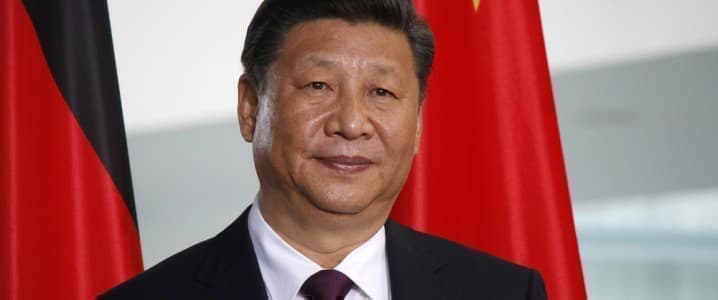Even before Russia’s invasion of Ukraine, Chinese President Xi Jinping had plenty on his plate: maintaining ambitious growth targets, a deepening rivalry with Washington, climate change, demographic pressure, blowback from a tough COVID-zero strategy, and paving the way for a precedent-defying third term as leader. But the Ukraine war has compounded those problems and set off a cascade of knock-on effects that are shifting Chinese policy at home and abroad.
Finding Perspective: In foreign policy, Beijing has clearly wedded itself to Russia throughout its war and betrayed long-held principles about the inviolability of sovereignty and non belligerence toward other nations by refusing to call Moscow’s unilateral actions an “invasion.”
Across Eurasia, this is playing out in unexpected ways, as I explored here in a recent article.
The Shanghai Cooperation Organization (SCO) -- a regional bloc of China, India, Kazakhstan, Kyrgyzstan, Pakistan, Russia, Tajikistan, and Uzbekistan -- is Beijing’s umbrella organization for this part of the world and represents a balance of power between Beijing and Moscow, the region’s two hegemons.
The SCO has struggled at times with finding an overriding mission, and fallout from the war risks derailing that further, especially as Beijing must now navigate between backing Russia and embracing many SCO members’ desire for more distance from Moscow.
“Due to its size and geography, China’s role [in Central Asia] will grow [following the war], but the SCO won’t have many success stories to point to,” Temur Umarov, a fellow at the Carnegie Moscow Center, told me. “Beijing is also now seen as a supporter of Russia and as a country that isn't doing much to restrain Moscow when many [SCO members] are seeing it as a potential threat.”
Why It Matters: China’s footprint in Eurasia and the future of the SCO are just one example of repercussions from the war that could hinder wider Chinese goals.
While China grapples with a sustained economic slowdown due to COVID-19 lockdowns, the war has pushed up costs for Chinese businesses and contributed to fading overseas demand for their exports.
Related: The U.S. Shale Patch Is Facing A Plethora Of Problems
This not only raises the possibility of recession inside China but also globally, as the world economy risks becoming deprived of one of its main engines at a time when inflation and war fallout are also set to hit Europe and the United States later this year.
One Thing To Watch
The groundwork continues to get laid for Xi to take up a third term in power as leader of the Communist Party at its 20th congress later this year.
Beijing has already made moves to centralize more power across China’s provinces, and additional moves to avoid any hiccups for Xi are set to come. There’s no fixed date for the congress, but the past few have been held in either October or November, although the decisions for top jobs take place in advance and behind closed doors. One coming venue is a seaside retreat by Communist Party power brokers in Beidaihe that is usually held in July or August, where they lobby for their top picks.
By RFE/RL
More Top Reads From Oilprice.com:
- Can Brazil Help Fill The Supply Gap Left By The U.S. Ban On Russian Oil?
- 3 Shale Stocks Bucking A Worrying Trend
- Iran Moves Ahead With $500 Million South Pars Oil Development Deal



















The outcome of this conflict will impact the global economy, energy resources, and the US dollar as the dominant global reserve currency and the basis of the global financial system.
And contrary to claims by the author that the Ukraine conflict is a geopolitical minefield for Chinese President Xi Jinping, he is in fact in the thick of it rather than a bystander.
The reality is that China is challenging the United States to the top spot in world power and is hell-bent in ensuring that the yuan unseats the dollar as the top reserve currency in the world and that the petro-yuan replaces the petrodollar as the global oil currency. China needs Russia to achieve these strategic goals. President Putin’s demand that payment for Russia’s oil and gas exports should be in rubles does dovetail with China’s efforts to undermine the petrodollar. Both Russia and China know that by undermining the petrodollar they are also pulling the rug from under the US financial system and the dollar.
Moreover, China is fully aware that the Ukraine conflict could have been avoided if the United States and NATO have shown even a semblance of statesmanship in addressing Russia’s legitimate security issues dating back to the aftermath of the collapse of the former Soviet Union. They continued to expand towards the Russian borders by wanting to bring Ukraine into NATO despite many warnings from President Putin.
President Putin and President Xi Jinping also know that their strategic partnership is a healthy check on Washington’s “unipolar folly”.
Dr Mamdouh G Salameh
International Oil Economist
Visiting Professor of Energy Economics at ESCP Europe Business School, London